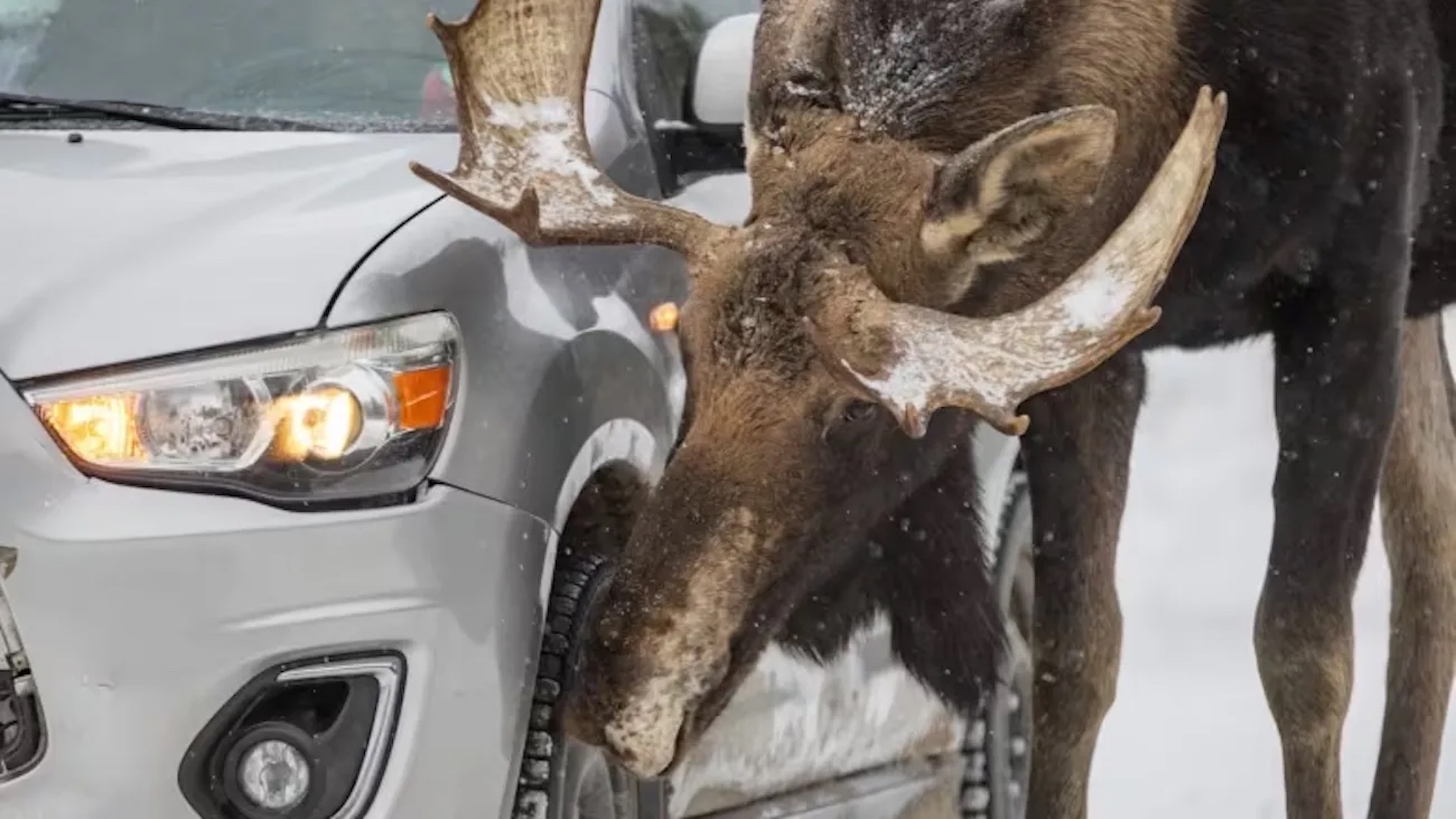Don’t let moose lick your cars, warns Parks Canada
Moose looking for a salt fix are getting a little too overfamiliar with motor vehicles

All the latest inspiration, tips and guides to help you plan your next Advnture!
You are now subscribed
Your newsletter sign-up was successful
Parks Canada are urging motorists not to let moose lick their cars, and not because their tongues might get stuck to them in sub-zero winter temperatures.
Apparently, moose are likely to try to lick your car when there’s snow on the ground, because they’re trying to satisfy a salt craving, and naturally occurring salt sources are in short supply in the winter. But in the winter your car will be coated with salt because road salt is applied to highways to reduce skidding. The road salt then sprays up onto cars to form a delicious food supplement for the moose.
“In the summer there's lots of greenery around and those plants have a lot more minerals in it … and in the winter they typically don’t have access to that,” says University of Northern British Columbia moose expert Roy Rea.
But while it may look cute to stop your car so the moose can have a lick, it’s never sensible to get to near to a moose (they may look gentle by nature but moose attacks far outnumber bear attacks). But Parks Canada are highlighting another problem.
According to Parks Canada spokesperson Tracy McKay, allowing moose to lick road salt from cars causes the moose to lose their fear of roads and vehicles, which increases the likelihood of them becoming involved in road traffic accidents.
“This kind of puts them at risk of being injured or killed if they get hit by a vehicle,” McKay told CBC News. “There’s been a few projects in various places that have tried salt alternatives, but they tend to be more expensive or they don’t work as well or both.”
All the latest inspiration, tips and guides to help you plan your next Advnture!
